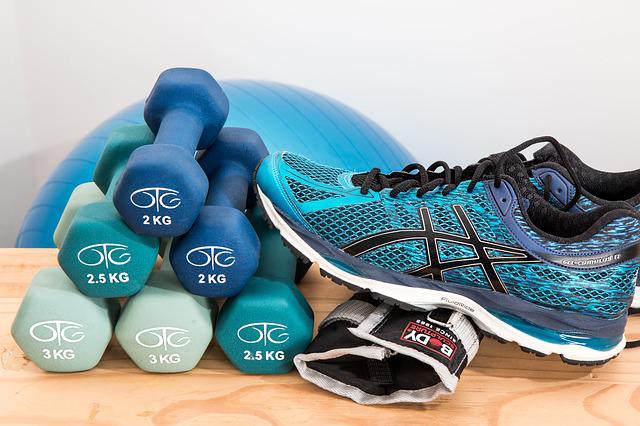
NSCA offers a wide range of CEU options through events, quizzes and home study courses. These opportunities may be available through the association, as well as through partners. MedBridge is one of these organizations. If you are looking to keep your certification current and maintain your credentials, these courses can be taken for free.
MedBridge
MedBridge might be the right choice for you if your goal is to earn NSCAE Credits. They offer convenient CEUs with the added benefit of a robust platform. The site also offers a number of continuing education courses. The IDN Foundation course has 27 CE hours and 32 CCUs. It is also approved for 2.7 CE credits through FSBPT. Campus Recreational Sport: Managing Employees Programs and Services was designed to give students the knowledge and skills they need to be a campus recreation manager.

ACE
While the NSCA may be more prestigious and have been around for a while, ACE has established itself as a worthy competitor. It is recognized by many employers in the United States as well as in Europe. It is also recognized by the National Academy of Sports Medicine.
ACSM
ACSM CPT test is multi-faceted. It is divided into four domains according to cognitive levels. Retaking the exam every three years is required to keep your certification. Recertification costs $45 on-time and $75 if you are late. It has 150 multiple-choice options.
ISSA
In order to maintain your ISSA certification, you will need to earn at least 20 continuing education credits. These credits are not required, but you will need to purchase the renewal package which costs $99. Although NSCA only requires 6.0 CECs once every three years, most certifications are two-year renewals.
NSCA
A variety of CEU opportunities are available to members of the National Society of Arboriculture. These include CEU quizzes and virtual events as well as industry-leading conferences. Participation in NSCA-accredited volunteer activities and other programs can earn you CEUs.

NASM
If you are a fitness or health professional, you have probably heard about continuing education units (or CEUs). These units can be earned through time-based credits by completing supplementary academic activities such as attending workshops or enrolling in certification classes. These courses must be offered by an approved provider to qualify for CEUs. NSCA, on the other hand, requires that members complete 60 hours of continuing education each year. NSCA certifications cost $60 - $90, and non-members must spend between $35 and $65 to be recertified.
FAQ
Why is physical fitness important?
Fitness is crucial for our health. To maintain our strength, flexibility and weight, as well as our cardiovascular system, we must exercise regularly. Exercise improves sleep quality, helps with stress management, increases energy and boosts self-esteem.
Which Is Most Important: Diet, Exercise, or Sleep?
The answer depends on what you want to achieve. It is important to lose weight. If you are looking to build muscle mass, however, exercise is the best option. Because it affects your performance during the day, sleep is the most important factor.
Why is it important that you get enough sleep?
Sleep is essential for maintaining a healthy lifestyle. Your body needs sleep to heal itself from daily stressors. A good night's sleep is essential for optimal functioning throughout the day.
What is the importance and benefits of good nutrition for your health?
For our well-being and health, nutrition is essential. A healthy diet includes fruits, vegetables, whole grains, lean protein, and dairy. Being active and eating healthy foods can help us be more fit, which results in better overall health.
Does exercise cause me to lose weight?
Yes. Yes. Regular exercise can help you lose weight and burn extra calories. Your metabolism will remain high, so you can continue to burn calories even though you're not exercising.
Statistics
- Adolescent girls were less active than adolescent boys, with 85% vs. 78% not meeting WHO recommendations of at least 60 minutes of moderate to vigorous intensity physical activity per day. (who.int)
- According to the Centers for Disease Control and Prevention, chronic diseases cause 7 out of 10 deaths in the U.S., and treating chronic diseases accounts for 86% of U.S. healthcare costs. (mana.md)
- One study showed that adults who watch more than 4 hours of television daily had an 80% higher risk of death from cardiovascular disease. (heart.org)
- In 2018, the World Health Assembly agreed on a global target to reduce physical inactivity by 15% by 2030 and align with the Sustainable Development Goals. (who.int)
External Links
How To
How To Burn Belly Fats Faster
When we are trying to lose weight, belly fat is often seen as a problem. However, Belly Fat can be beneficial if you really think about it. Your organs are protected by the fat around your stomach. So let's see how to burn belly fat fast.
The main factors that contribute to our body fat accumulation are stress and inactivity. Stress makes us feel hungry constantly because it stimulates the production of the cortisol hormone. Cortisol is responsible for an increase in insulin levels. The excess calories are stored as fat by insulin. Lack of sleep causes the release of adrenaline into our system, leading to increased appetite. These extra calories can also be reduced by exercise
There are many options to reduce belly weight. You can choose to try any of these options, depending on your budget. These tips will help you quickly get rid of belly fat.
-
Reduce your food intake. You should eat smaller meals throughout the day than you would if you ate three big meals. You will eat less calories in general.
-
Drink plenty of water. Water flushes out toxins, and keeps your body hydrated. Drinking water before meals will help you feel fuller for longer, so you don't overeat.
-
Avoid unhealthy snacks. If you're looking for quick fixes, snack foods like chips, cookies, candies, etc. It might sound tempting. But avoid these fattening treats as they contain lots of empty calories and too much sugar. Instead, choose healthy alternatives like fruits, veggies, nuts, seeds, and whole grains.
-
Strength training should be performed at least 3 times per week. Strength training builds muscle mass which burns more calories even while resting. Strength training strengthens bones, muscles and ligaments. It can also improve the heart, lungs, joints, and other body systems.
-
Stretching and walking are good habits. Stretching improves flexibility and mobility which can reduce back pain. Walking is great for burning calories, especially brisk walking for 30 minutes.
-
Reduce alcohol intake. Alcohol adds empty calories to your diet and has no nutritional value whatsoever.
-
Reduce your weight gradually. The first step towards losing weight is to identify what your current weight is. Calculate your ideal weight by adding approximately 5% to 10% of the total weight. Once you have reached your target weight, begin decreasing your daily calories intake by 500-1 000 calories until you reach your goal.
-
Avoid processed foods. These foods have high amounts of salt, sugar, and preservatives. Processed foods are often very convenient but don't provide enough nutrients to keep you healthy.
-
Don't skip breakfast! Eating breakfast improves concentration, memory, and energy level. Include protein (like eggs) and fiber, like oats, in your breakfast.
-
Have regular bowel movements. Bloating and gas can be caused by irregular bowel movements and constipation. You can prevent this by drinking lots of water and increasing your fiber intake.